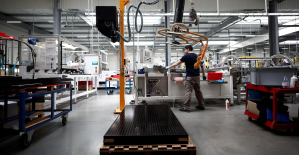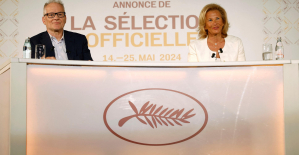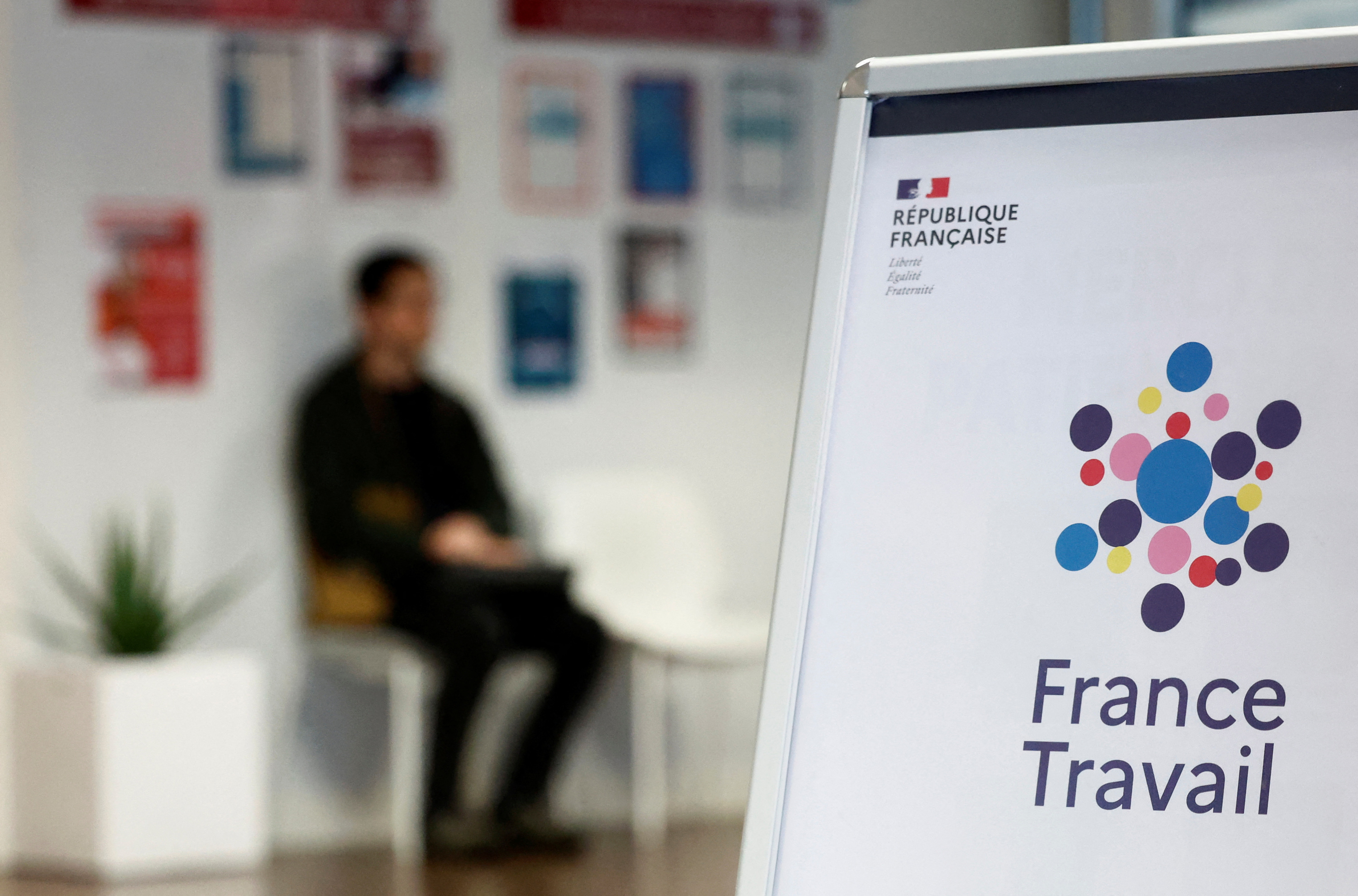Sena Nowarra wondered about what she experienced as an Intern in the Psychiatric University hospital Zurich and Balgrist: The individual professional groups worked largely for themselves. "In psychiatry, there was only once a week a team meeting," says the student at the Zurich University of Applied Sciences, the ergo intends to be a therapist. "And in the orthopaedic clinic, an exchange took place only with the Physios."
Something else entirely experienced Nowarra, after they had applied for a special project at the Zurich University hospital: a training station, to the students from different Professions together is a Department of the neurological clinic and patients and patients after a stroke or with Parkinson's disease to independently take care of. The pilot project took place in 2018, twice during a month. It is the practice test for a training model that could change the health care system.
Small section
The magic word is inter-professionalism, and cooperation among the various professional people. To promote this, together with the medical faculty of the University of Zurich, the Department of health of the ZHAW and the two schools for the health professions Careum and ZAG. According to the model of the Karolinska Unispitals in Stockholm, they developed the concept for the inter-professional Training ward. With the occupational therapist Nowarra in the use of a budding physical therapist, four nursing students and two medical students. The Team was responsible for six patients. The day began with a meeting: How is patient A after the first night in the hospital? What is the treatment, Patient B needs?
Then the young people went to the patient room. "We solved problems together and were able to learn from each other," says Nowarra. You saw, for example, that the physician, like the ergo, make the therapists with the patients cognitive Tests, but in-depth evaluate. Every day, the Team was devoted to a special topic. For example, the question, what is the meaning of independence for the Ergo's, Physio's or the care. "There are differences", Nowarra, "such reflections extend to the horizon."
model Sweden
Nada Vukasinovic's professional make-up artist care in the neuro clinic, and has accompanied the Team. You have little need to intervene, she says, "the students were so good and took responsibility". Also, the patients have expressed positive. Vukasinovic regrets that she cannot continue working with such a mixed student groups: "I miss you." Maybe it's just a matter of time. At Karolinska Institutet in Stockholm, in any case, all students go almost on inter-professional stations. However, it has started there many years ago. In addition to Sweden, there is the concept in some German University hospitals.
In Switzerland we want to develop it now, after the successful pilot phase. According to Claudia Witt, Vice Dean, faculty of inter-professionalism at the University of Zurich, is the definitive Start in October. Then two stations in the University hospital, Internal medicine and traumatology, to participate as well as a Station in Balgrist. Further, the project team is in the conversation, says Witt.
a precondition is that the departments have a space where students come together and exchange ideas. In the Unispital this is because of the construction activity is not always easy. But it can also join other hospitals. For Claudia Witt, the advantage is evident: "If you start early with the team work, it is a matter of course." The practice test had shown that the members of the various professional groups to exchange eye-to-eye.
patients relieved
And yet something was for the Stakeholders to be positive: There is less bureaucracy. Usually each of the professional writing group, what are you doing with a patient, a patient, and the other should read these reports. In the new model, however, where all talk together, everyone is informed. "It's a lot easier," professional make-up artist Vukasinovic. "And the patients are also facilitated," adds Sena Nowarra, "because you don't have to tell everyone the same thing."
(Tages-Anzeiger)
Created: 21.03.2019, 22:51 PM

 Germany: the trial of an AfD leader, accused of chanting a Nazi slogan, resumes this Tuesday
Germany: the trial of an AfD leader, accused of chanting a Nazi slogan, resumes this Tuesday New York: at Columbia University, the anti-Semitic drift of pro-Palestinian demonstrations
New York: at Columbia University, the anti-Semitic drift of pro-Palestinian demonstrations What is Akila, the mission in which the Charles de Gaulle is participating under NATO command?
What is Akila, the mission in which the Charles de Gaulle is participating under NATO command? Lawyer, banker, teacher: who are the 12 members of the jury in Donald Trump's trial?
Lawyer, banker, teacher: who are the 12 members of the jury in Donald Trump's trial? What High Blood Pressure Does to Your Body (And Why It Should Be Treated)
What High Blood Pressure Does to Your Body (And Why It Should Be Treated) Vaccination in France has progressed in 2023, rejoices Public Health France
Vaccination in France has progressed in 2023, rejoices Public Health France Food additives suspected of promoting cardiovascular diseases
Food additives suspected of promoting cardiovascular diseases “Even morphine doesn’t work”: Léane, 17, victim of the adverse effects of an antibiotic
“Even morphine doesn’t work”: Léane, 17, victim of the adverse effects of an antibiotic Orthodox bishop stabbed in Sydney: Elon Musk opposes Australian injunction to remove videos on X
Orthodox bishop stabbed in Sydney: Elon Musk opposes Australian injunction to remove videos on X One in three facial sunscreens does not protect enough, warns L'Ufc-Que Choisir
One in three facial sunscreens does not protect enough, warns L'Ufc-Que Choisir What will become of the 81 employees of Systovi, a French manufacturer of solar panels victim of “Chinese dumping”?
What will become of the 81 employees of Systovi, a French manufacturer of solar panels victim of “Chinese dumping”? “I could lose up to 5,000 euros per month”: influencers are alarmed by a possible ban on TikTok in the United States
“I could lose up to 5,000 euros per month”: influencers are alarmed by a possible ban on TikTok in the United States Dance, Audrey Hepburn’s secret dream
Dance, Audrey Hepburn’s secret dream The series adaptation of One Hundred Years of Solitude promises to be faithful to the novel by Gabriel Garcia Marquez
The series adaptation of One Hundred Years of Solitude promises to be faithful to the novel by Gabriel Garcia Marquez Racism in France: comedian Ahmed Sylla apologizes for “having minimized this problem”
Racism in France: comedian Ahmed Sylla apologizes for “having minimized this problem” Mohammad Rasoulof and Michel Hazanavicius in competition at the Cannes Film Festival
Mohammad Rasoulof and Michel Hazanavicius in competition at the Cannes Film Festival Skoda Kodiaq 2024: a 'beast' plug-in hybrid SUV
Skoda Kodiaq 2024: a 'beast' plug-in hybrid SUV Tesla launches a new Model Y with 600 km of autonomy at a "more accessible price"
Tesla launches a new Model Y with 600 km of autonomy at a "more accessible price" The 10 best-selling cars in March 2024 in Spain: sales fall due to Easter
The 10 best-selling cars in March 2024 in Spain: sales fall due to Easter A private jet company buys more than 100 flying cars
A private jet company buys more than 100 flying cars This is how housing prices have changed in Spain in the last decade
This is how housing prices have changed in Spain in the last decade The home mortgage firm drops 10% in January and interest soars to 3.46%
The home mortgage firm drops 10% in January and interest soars to 3.46% The jewel of the Rocío de Nagüeles urbanization: a dream villa in Marbella
The jewel of the Rocío de Nagüeles urbanization: a dream villa in Marbella Rental prices grow by 7.3% in February: where does it go up and where does it go down?
Rental prices grow by 7.3% in February: where does it go up and where does it go down? Europeans: “All those who claim that we don’t need Europe are liars”, criticizes Bayrou
Europeans: “All those who claim that we don’t need Europe are liars”, criticizes Bayrou With the promise of a “real burst of authority”, Gabriel Attal provokes the ire of the opposition
With the promise of a “real burst of authority”, Gabriel Attal provokes the ire of the opposition Europeans: the schedule of debates to follow between now and June 9
Europeans: the schedule of debates to follow between now and June 9 Europeans: “In France, there is a left and there is a right,” assures Bellamy
Europeans: “In France, there is a left and there is a right,” assures Bellamy These French cities that will boycott the World Cup in Qatar
These French cities that will boycott the World Cup in Qatar Serie A: Bologna surprises AS Rome in the race for the C1
Serie A: Bologna surprises AS Rome in the race for the C1 Serie A: Marcus Thuram king of Italy, end of the debate for the position of number 9 with the Blues?
Serie A: Marcus Thuram king of Italy, end of the debate for the position of number 9 with the Blues? Milan AC-Inter Milan: Thuram and Pavard impeccable, Hernandez helpless… The tops and flops of the derby
Milan AC-Inter Milan: Thuram and Pavard impeccable, Hernandez helpless… The tops and flops of the derby Ligue 2: Auxerre leader, Bordeaux in crisis, play-offs... 5 questions about an exciting end of the season
Ligue 2: Auxerre leader, Bordeaux in crisis, play-offs... 5 questions about an exciting end of the season


















